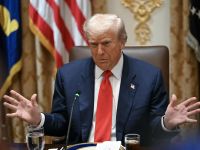The meeting of G7 finance ministers and central bankers in Singapore this past weekend sparked a substantial amount of commentary on not only the economic situations of the attending countries, but their respective currencies as well. This week, we will focus on what participants from the IMF and G7 countries had to say just prior to and after the meeting.
BoJ: Talking Down EUR/JPY<?xml:namespace prefix = o ns = "urn:schemas-microsoft-com:office:office" />
Both Japanese and European officials seem to agree that yen strength should be in the cards?
Sadakazu Tanigaki, Japanese Finance Minister
My view is that the recent decline of the yen against the euro has been a little rough?I am under the impression that there was an understanding that the yen will reflect this trend of the Japanese economy. September 16, 2006
Toshihiko Fukui, BOJ Governor
The IMF board should discuss this issue from the viewpoint of securing a consistency between exchange rate policies and other domestic economic policies, and not in the narrow context of attributing the global imbalance to a specific country's or region's exchange rate policies. September 15, 2006
Jean-Claude Trichet, ECB President
We discussed growth in the Japanese economy and the exit from the zero interest rate policy. The yen will reflect these developments. September 18, 2006
Hiroshi Watanabe, Japanese Vice Finance Minister
We share the G7 view that exchange rates should reflect <?xml:namespace prefix = st1 ns = "urn:schemas-microsoft-com:office:smarttags" />Japan's broad-based recovery. There is a need for currency movements to reflect fundamentals. September 18, 2006
Atsushi Mizuno, BoJ Policy Board Member
We have been seeing some mixed reports recently with both strong and weak sides. We don't necessarily interpret data the same way the market does?Things are in line with our scenario. I want to emphasize that that means fine adjustments will continue to be made to interest rates?We haven't seen signs that the rising momentum of capital spending is easing. September 13, 2006
Kazumasa Iwata, BOJ Deputy Governor
The Bank of Japan's monetary policy will not be affected much by a revised calculation method for the consumer price index (CPI) adopted last month. September 14, 2006
PBoC: A Matter of Flexibility
Central bankers and finance ministers alike appear to think that China is moving in the right direction on the yuan issue?
Zhou Xiaochuan, PBoC Governor
I think China's policy is clear that we are gradually moving towards more flexibility than where it is. September 18, 2006
Su Ning, PBoC Vice Governor
We will continue to improve the yuan formation mechanism...and provide more financial derivatives to companies to hedge risk. We will make the yuan more reflect changes in the market situation, to be more decided by market demand and supply....to increase its flexibility. September 14, 2006
Sadakazu Tanigaki, Japanese Finance Minister
Our discussion has been focused more on the flexibility and not the value of the currency [yuan]. September 18, 2006
James Flaherty, Canadian Finance Minister
The Chinese have made every effort to be forthcoming in what they do and in their view that their participation is part of what is needed but is not the whole story, certainly. September 18, 2006
Others want action immediately?
Rodrigo de Rato, IMF Managing Director
[China's] decision to change [its] exchange rate mechanism last year is the right one, but that decision has to be implemented. We believe its in the interest of China -- not only in exchange rates but in general -- to let [the] market determine the allocation of its resources more effectively. September 15, 2006
There is a growing risk that protectionist sentiment will overwhelm good sense. If it does, all of the other risks loom larger. September 18, 2006
Charles Schumer, US Senator
Referring to a bill proposed by Senator Schumer and Senator Lindsey Graham, which would put a 27.5% duty on Chinese imports, he said, I think the votes are there?We intend to have a vote. September 15, 2006
US Fed: Slowdown Ahead?
Many officials have accepted that a US economic slowdown is imminent, but rising inflation may leave the Fed in a tough spot?
Henry Paulson, U.S. Treasury Secretary
We were able to report that US economic growth is settling into ranges more in line with our long term potential. We continue to see solid productivity growth and job growth, and we continue to make progress in bringing down our fiscal deficit. The residential housing market is cooling from record unsustainable growth rates, but growth in the US economy is being supported by other components, including wage growth, strong corporate balance sheets, and increased business capital investment. September 18, 2006
John Lipsky, IMF First Deputy Managing Director
The somewhat slower growth in consumption in the US was part of an inevitable and desirable adjustment process. What is important is that it is kept in balance and on track and does not involve a slowdown in global growth. September 15, 2006
Raghuram Rajan, Chief Economist at IMF
It is clear that even as the (US) economy slows, inflationary pressures are rising. If these become entrenched in expectations, the Fed will have to raise interest rates even higher and for longer. So the Fed may soon be on the horns of a dilemma and monetary policy will need to be skillfully managed if the economy is not to be gored. September 14, 2006
Paul Jenkins, Bank of Canada Deputy Governor
The rates of growth in the U.S. were unsustainable, so some slowing was expected ... but even with the slowing in the U.S. growth, what we are seeing is stronger growth in the rest of the world. September 14, 2006
ECB: Maintaining A Hawkish Stance
Central bankers continue to sound tough on inflation and optimistic on growth prospects?
Jean-Claude Trichet, ECB President
We are in a position of strong vigilance (on inflation). September 18, 2006
Jose Manuel Gonzalez-Paramo, ECB Executive Board Member
Said that we are strongly vigilant on the risks to price stability despite the recent easing of crude futures. September 18, 2006
Jurgen Stark, ECB Executive Board Member
Growth is very robust in Europe and we continue to have the chance to grow in line with potential. Rates are low both in nominal and real terms. September 17, 2006
However, EU officials arent so quick to jump on the bandwagon?
Joaquin Almunia, EU Economic and Monetary Affairs Commissioner
Although economic growth in Europe is performing well in the year to date, when we look to 2007, the risks (to economic growth) rise. September 14, 2006








